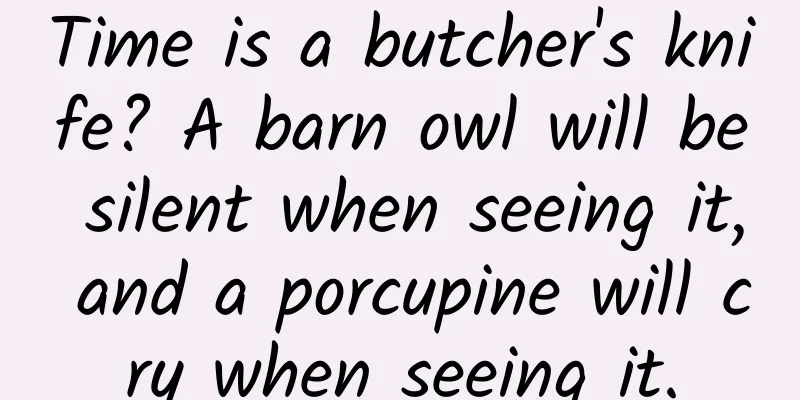While watching the World Cup, also check out this archaeological study on the origin of football!

|
While watching the World Cup, also check out this archaeological study on the origin of football! Zhang JinMember of the Intangible Cultural Heritage Working Committee of China Arts and Crafts Association Lu Zhi Playing football with the emperor, rising to prominence At the end of the Northern Song Dynasty, there was an uneducated hooligan named Gao Qiu in the capital of Dongjing. Gao Qiu's father could not stand his laziness and trouble-making all day long, so he reported him to the government. The officials punished Gao Qiu by giving him 20 back strokes (a caning on the back of the prisoner) and expelled him from Dongjing. Gao Qiu, who was desperate, first went to Huaixi (now the central part of Anhui Province) to seek refuge with a man named Liu Shiquan. Liu Shiquan opened a gambling house in Huaixi, but he did not intend to keep Gao Qiu for a long time. Three years later, the then emperor Song Zhezong issued a general amnesty, so Liu Shiquan recommended Gao Qiu to return to Tokyo and let him help manage the medicinal materials business under a man named Dong Jiangshi. Dong Jiangshi had heard of Gao Qiu's deeds a long time ago and did not want to keep Gao Qiu, so he recommended him to the great writer Su Dongpo again. Su Dongpo, who was of high moral character, looked down on this rogue and recommended Gao Qiu to his good friend, the son-in-law Wang Shen. In this way, Gao Qiu was like a ball, being "kicked around". But Gao Qiu was extremely lucky, because his husband Wang Shen valued him very much. The reason why Wang Shen valued Gao Qiu was that although Gao Qiu had many bad habits, he was good at a ball sport - Cuju, and Wang Shen was also good at it. Wang Shen had a good relationship with his nephew, Prince Duan Zhao Ji, the younger brother of the then Emperor Song Zhezong. They both liked Cuju and often played together. After a while, Prince Duan Zhao Ji saw Gao Qiu's superb football skills and forced Wang Shen to take this guy who was despised by countless people to play football with him. Gao Qiu catered to his interests and soon became Prince Duan Zhao Ji's confidant. Life is so magical and unexpected. Emperor Song Zhezong died suddenly without any offspring, so his younger brother, Prince Duan Zhao Ji, who only liked to play football and paint, became the first heir to the throne. Zhao Ji became the emperor, later known as Emperor Huizong of Song. He was a famous emperor of calligraphy and painting in Chinese history, a person who was very good at everything except being an emperor. Gao Qiu, who played football with him, rose to prominence and became the Grand Marshal (equivalent to the Minister of Defense). The above story comes from "Water Margin", one of the four great Chinese classics. It tells the rise of Gao Qiu, the biggest villain in the book. He is a famous traitor in Chinese history. Gao Qiu had no military achievements, but he was able to take charge of the imperial guards thanks to the favor of Emperor Huizong of Song. He also took advantage of his favor to engage in private interests and occupied the military power of the court to serve himself. When the Jin soldiers from the north invaded the capital Dongjing, the imperial guards had no resistance and allowed the Jin soldiers to directly attack the palace. The origin of Cuju: many stories The ball game that Gao Qiu played is called "Cuju", which has a long history in China. "Cuju" means kicking; "Ju" is a kind of ball used for kicking and playing in ancient times. It was originally made of hair, and later made of leather filled with hair. Many notes of Song people have introductions to Cuju. Gao Qiu was a master of Cuju. There is a wonderful description of this in "Water Margin". The ball seemed to stick to Gao Qiu's body and "fly all over the field" with Gao Qiu. Different scholars have different opinions on the origin of Cuju. Some say that it was created by Huangdi for military exercises more than 4,000 years ago. At that time, Huangdi captured Chiyou alive after defeating the Chiyou tribe. In order to vent his hatred, he took out Chiyou's stomach and stuffed it with hair to make a "cuju". Since then, once the army wins, they will take out the enemy's stomach and make it into a ball for the soldiers to play with to boost morale. This statement is too bloody and cruel, and there is no evidence to support it. A more credible theory is that Cuju originated in the Spring and Autumn Period and the Warring States Period more than 2,300 years ago. At that time, the entertaining game of Cuju was already popular among the people in Linzi, the capital of Qi State. This is recorded in the Chinese historical books "Records of the Grand Historian" and "Strategies of the Warring States". In the Han Dynasty, Cuju developed rapidly, which was the first peak of the development of ancient Chinese Cuju. At that time, not only recreational Cuju was inherited, but also performance and competitive Cuju appeared. If you want to know who made the greatest contribution to Cuju in the Han Dynasty, it was Liu Bang's father, Liu Taigong. After Liu Bang became emperor, his father also moved to Chang'an. Liu Taigong, who came to Chang'an, missed the Cuju in his hometown very much. In order to make his father happy, Liu Bang built a city on the open space in Chang'an, based on his hometown Fengyi, Pei County, and moved the villagers and Cuju here. From this time on, Cuju was sought after by the royal family and nobles of the Han Dynasty. Chang'an not only had Cuju, but also had a special place for holding Cuju competitions, called "Juyu". Cuju makes a good army, and regular kicking makes one good at fighting Xiang Chu of the Han Dynasty was the first person to be recorded in history for football, but his experience was unfortunate. According to the Records of the Grand Historian, the famous doctor Chunyu Yi treated Xiang Chu and told him not to overwork, but Xiang Chu did not listen and went out to play football. As a result, he vomited blood and died, which made Xiang Chu the first recorded fanatical "football fan" in the world. It was also during this period that Cuju began to be used for military training. In addition to training soldiers, Cuju was also used to enrich military life and keep soldiers in good physical and emotional condition. According to the Book of Han, Huo Qubing, a young hero in the early Western Han Dynasty, was a general who loved Cuju. Huo Qubing was born in poverty and was keen on playing Cuju on the street when he was a teenager, which helped him develop a strong body and a brave and fearless spirit. After he became an adult, Huo Qubing went to war against the Xiongnu, and Cuju was also his biggest hobby on the march. Even when he was in danger of running out of food and grass, he still led his soldiers to build a goal on the grassland to play Cuju. Tang and Song Dynasties: There were many die-hard football fans, and poets were also fans of Cuju The Tang Dynasty people sewed eight pieces of leather together to make the outer shell of Cuju, which made it look much rounder. Later, they inflated animal bladders to make the inner liner, so that Cuju became an inflatable ball. Such a high level of ball-making technology is quite close to the method of making modern football. Because the ball is filled with gas, it becomes very light and easy to kick high. The more round sphere also makes it easier for the kicker to control the ball. At that time, not only did Cuju organizations emerge, but there were also artists who specialized in Cuju, and the rules, venues, facilities, etc. were also more complete. Among the emperors of the Tang Dynasty, there were many die-hard football fans. Emperor Taizong of Tang Li Shimin and Emperor Xuanzong of Tang Li Longji both loved to watch Cuju. Emperor Wenzong of Tang Li Ang even often climbed up the "Qinzheng Building" to look down at people playing Cuju. Later, Emperor Xizong of Tang Li Xuan would personally join the football team and charge forward. It is said that Emperor Xizong of Tang once said that if a Tang Dynasty football grand slam competition was held, he would definitely win first place. The last emperor of the Tang Dynasty, Emperor Zhaozong Li Ye, was sentenced to force Zhu Wen to move from Chang'an to Luoyang. On the way, a group of "national football players" who were born as bad boys did not abandon him, which shows Zhaozong's love for Cuju and his deep feelings for the players. Not only emperors, but also many Tang Dynasty poets were fans of Cuju, including Li Bai, Du Fu, Wang Wei, Liu Yuxi, Wei Yingwu, Bai Juyi, etc. They used their brilliant poems to describe the charm of Cuju and express the Tang people's love for the sport. During the Song Dynasty, folk artists added many fancy kicking techniques to Cuju, which became a performance program for large banquets. In addition to performances, Cuju was also used in competitive games, and there was even a special Cuju team - Qiyun Society, and an authoritative competition - Shanyue Zhengsai, which is similar to today's club competitions. Cuju was extremely popular in both the folks and the courts of the Song Dynasty. The most famous "fans" were the three emperors of the Northern Song Dynasty - Emperor Taizu of Song Zhao Kuangyin, Emperor Taizong of Song Zhao Guangyi and Emperor Huizong of Song Zhao Ji. At that time, Cuju was also used for military training. Zhao Kuangyin and Zhao Guangyi were both military men and liked sports. Their main sports activity after work was playing football. After Zhao Kuangyin became emperor, he played football with Zhao Guangyi, Zhao Pu, Shi Shouxin and others. The painting "Emperor Taizu of Song Playing Cuju" depicts the scene of them playing football. Unlike Zhao Kuangyin and Zhao Guangyi, Zhao Ji, a "football fan", not only liked to play football himself, but also loved to watch football games. For this reason, he set up a Cuju team in the palace. As mentioned above, Gao Qiu was also favored because of his superb football skills. It can be seen that Zhao Ji's obsession with Cuju is also a typical example of losing one's ambition due to playing with things. In the end, the Northern Song Dynasty perished in Zhao Ji's play. Ming and Qing Dynasties: The Decline of Cuju However, in the Ming Dynasty, the founding emperor Zhu Yuanzhang explicitly banned generals and soldiers from playing Cuju for fun, and Cuju performances were also banned during palace gatherings. A junior officer in the Weisuo (a military organization in the Ming Dynasty) had his right foot removed because of Cuju, and his entire family was exiled to Yunnan. Zhu Yuanzhang's ban can be called a major turning point in the history of Chinese Cuju. However, Cuju is still widely popular among the people. The "Cuju Atlas" in the early Ming Dynasty has 45 Yuanshe Jinyu, which is similar to the slogan of a professional team. In the middle and late Ming Dynasty, there were more than 80. In the "Journey to the West" (another of the four great ancient Chinese classics), which was written in the Ming Dynasty, there is a plot in which Tang Monk peeked at three spider spirits playing Cuju; and in "Jin Ping Mei", the most described sport is Ximen Qing leading men and women to play Cuju. The rulers of the Qing Dynasty were also not interested in Cuju. Shunzhi and Qianlong both issued orders to ban Cuju. There are few records about Cuju in Qing Dynasty historical materials. It is only known that the Manchus combined it with ice skating, and the sport of "Cuju on Ice" appeared. In the "Strange Stories from a Chinese Studio" written at the time, there is also a ghost story about an old man who was saved from death because of his good Cuju skills. After the middle of the Qing Dynasty, with the introduction of modern Western football, the traditional Chinese Cuju activity began to be slowly replaced and gradually declined. Want to play Cuju? Unlock the Cuju gameplay first! It should be pointed out that the ancient Chinese Cuju is very different from the modern football. But after understanding, you will find that the Chinese Cuju is not difficult to play. There are three forms: "direct confrontation", "indirect confrontation" and "white fight". The method of distinguishing is also very simple, mainly looking at the goal: double goals are "direct confrontation", single goal is "indirect confrontation", and no goal is called "white fight". When playing a "direct confrontation" game, a court (i.e., a stadium) is set up with a short wall around it. Both sides of the game have a goal that looks like a small house. There are 12 (or 16) players on each side of the field. The two sides engage in direct physical contact, just like in a war. The one who kicks the ball into the opponent's goal more often wins. "Direct confrontation" was also the main form of Cuju in the Han Dynasty and was used for military training. In the "indirect confrontation" Cuju, the goal is placed in the middle of the field. There is no physical contact or fierce confrontation between the two sides. The game is more like an exhibition match. The "indirect confrontation" with a single goal was the main form of Cuju in the Tang and Song dynasties, mainly used for court banquets and diplomatic etiquette competitions. During the game, there is a "fengliu eye" more than two feet high in the middle of the goal. The two sides are on each side. The one who can make the ball pass through the fengliu eye more without the ball falling to the ground wins. The goalless free kicking style is called "Bai Da", which has lasted the longest and is the most widely used. Compared with "direct confrontation" and "indirect confrontation", "Bai Da" is more like a trick competition of Cuju, also known as the "jieshu" of the game. Each set of "jieshu" has a variety of kicking movements, and the ancients also gave some movements magical names. From the Han and Tang Dynasties, Cuju began to spread to West Asia, Japan and Korea, and later spread to Egypt, Greece, Rome, France and Britain, and developed into modern football in Britain. Of course, this is just the opinion of some people, and many Europeans, especially British people, may not think so. But in any case, the development of Cuju for more than 2,000 years has made an indelible contribution to the development of today's football. There are many different opinions about the origin of football in the world, but these debates were finally settled by FIFA. On July 15, 2004, FIFA President Joseph S. Blatter announced at the opening ceremony of the China International Football Expo in Beijing that world football originated in China, and said, "Football originated in China, and Linzi is the hometown of football. It is not only your pride, but also the pride of the Chinese people, the pride of the world, and the pride of all those who like football and the World Cup." Subsequently, Asian Football Confederation Secretary General Veerappan also announced at a press conference held by the Chinese Football Association that Linzi District, Zibo City, Shandong Province, China is the birthplace of world football, and issued it a commemorative cup and certificate for the origin of football. On May 20, 2006, Cuju was approved by the State Council as an intangible cultural heritage and included in the first batch of national intangible cultural heritage lists. Today, in Linzi, the birthplace of football, Cuju sports and Cuju culture are slowly reviving. Linzi has been carefully studying and exploring the history and culture of Cuju, and fully integrating Cuju into urban construction and development. Not only has a football museum and Cuju Park been built to promote Cuju culture, but also the Linzi Cuju Town has come into being. In order to better inherit and promote Cuju culture, thanks to the efforts of all parties, Cuju has been included in the school-based curriculum of many schools in Linzi District and even Shandong Province. During major festivals in Linzi every year, activities and competitions imitating ancient Cuju are also held, allowing citizens and tourists to get to know Cuju up close. |
<<: Is the mobile phone "high-end"? In fact, the most important part is made of sand→→→
>>: There are penguins in Antarctica, what is there in the Arctic?
Recommend
Foxconn is not going away: Will Trump's return to manufacturing fail again?
Some time ago, rumors about Foxconn moving to the...
11 cases have been confirmed nationwide in the past four years. Is plague scary?
On July 19, the Ningxia Hui Autonomous Region Pla...
Activities, teams, promotions, tools, guaranteed to be the most comprehensive new media operations guide you have ever seen!
The rise of mobile Internet has made the college ...
Oh my god! How come this frog has mushrooms growing on its body! | Nature Trumpet
Welcome to the 53rd issue of Nature Trumpet . In ...
Analysis of the "Standing Broom" Marketing Screen-Sweeping Event!
In the past few days, a "performance art&quo...
How to optimize English websites, Google English optimization suggestions
Optimizing an English site is much more difficult...
I am neither a turtle nor a stinky lady. Cover your eyes and guess who I am?
Flowers smile to birds, frogs sing to willows, wa...
Tang Zhenzong’s personal profile: How to convert more potential customers through the website?
In past business optimization experiences, Xiaohe...
Latest research: Will intermittent fasting cause baldness? Scientific maintenance methods revealed!
As a popular diet, intermittent fasting has attra...
Scientists deliberately sank a ship just to see what would grow on it
There are 3 million shipwrecks quietly lying in t...
China Passenger Car Association: Global auto sales will reach 6.71 million units in January 2024, with China accounting for 66%
Cui Dongshu, secretary general of the China Passe...
I have 11 tricks for writing good information flow copy. The last one made the boss laugh~
Writing a copy depends on inspiration for 30% and...
Server performance issues that PHPers should pay attention to – Tingyun Server trial notes
I have been using NewRelic's APM product to m...
At what battery health value does an Apple phone need to have before the battery needs to be replaced?
After IOS11.3, Apple added a battery health promp...
Sincere advice: Walking more than 7,000 steps a day can significantly reduce the mortality rate!
As the saying goes, if you take a hundred steps a...



![[Smart Farmers] Fish and Birds Travel Together: Ecological Paradise in the "Nine Bends and Eighteen Turns"](/upload/images/67f234a183996.webp)





